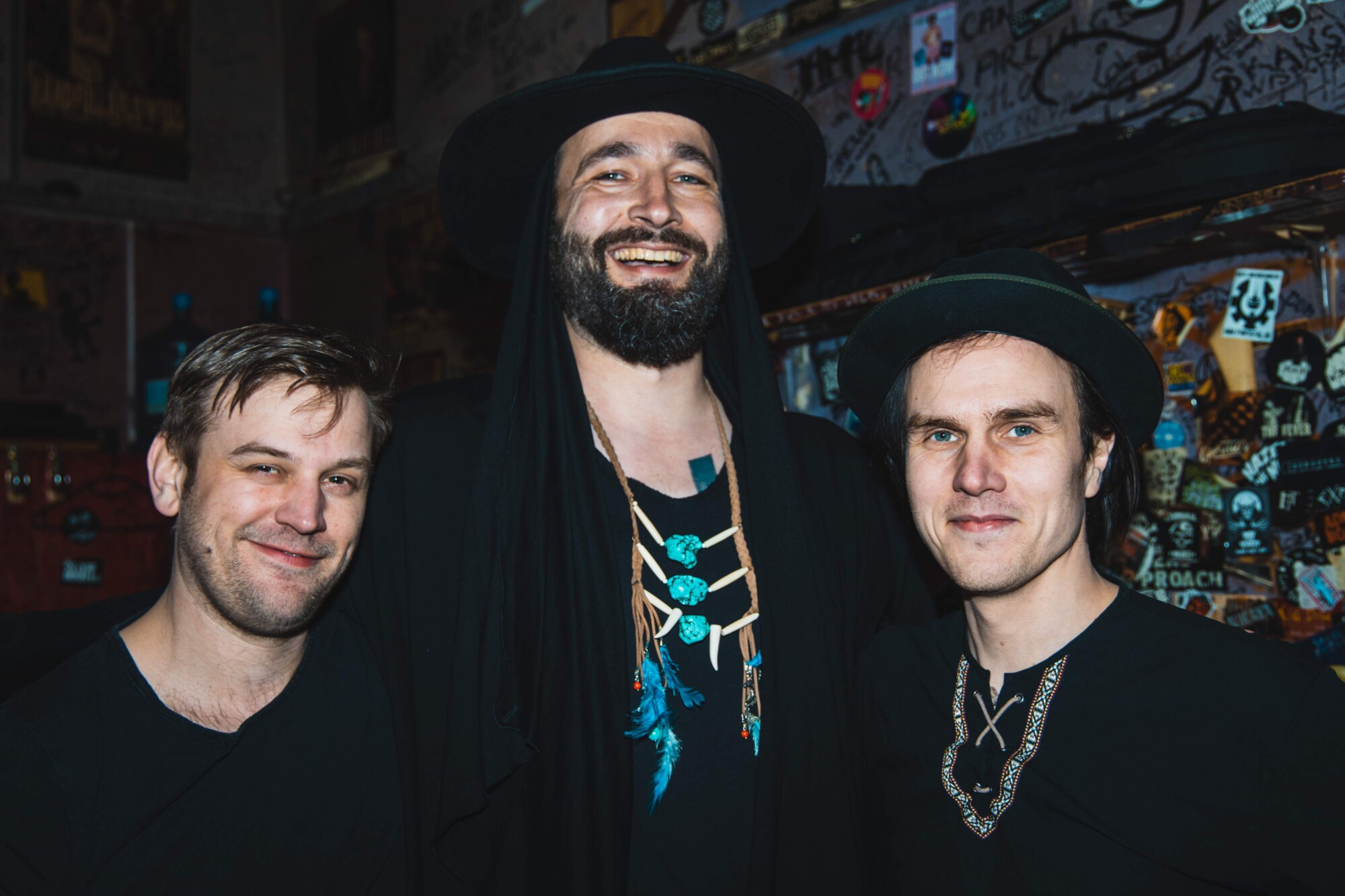Wolves of Saturn | Interview | New Album, ‘the deserts echo and the peyote delusion’
Wolves of Saturn, a psychedelic-tinged desert rock outfit from Dresden, Germany, take their sound to atmospheric depths.
Their full-length debut, recorded in the eerie confines of a World War II bunker on the outskirts of Dresden, first saw the light of day in 2023 via Clostridium Records. Now, Austin-based Herby Records is breathing new life into the release, bringing it stateside with revamped packaging. Raw, heavy, and dripping with otherworldly vibes, this album is a must-hear for desert rock devotees.
Forget pristine studios; these three took moldy walls and damp air and turned them into a sound that feels like breaking through stone. Their riffs grind, soar, and explode, dragging you into their world and spitting you back out covered in dust. If you’re tired of overproduced nonsense and crave something alive, Wolves of Saturn might just be your new favorite escape.
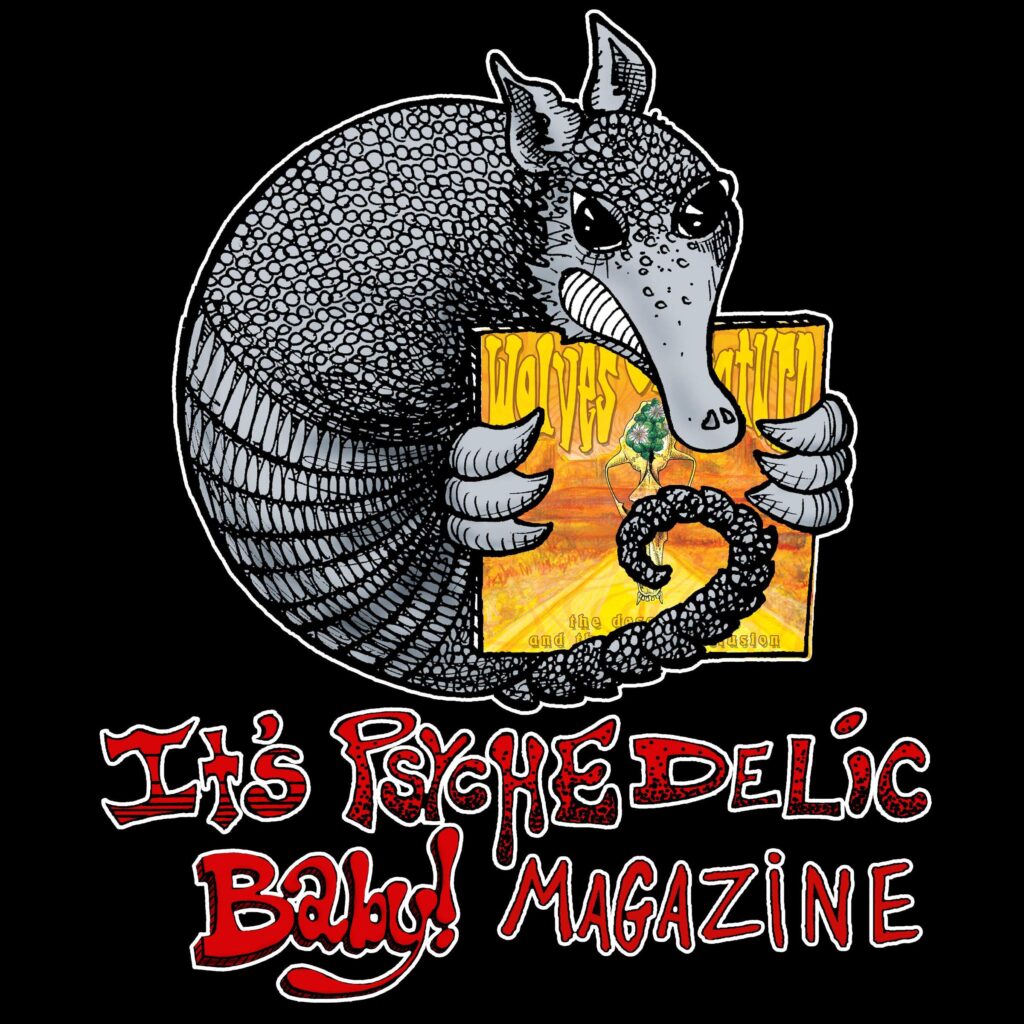
“We cut off any connections to the outside world”
When and where did the band originally form?
We founded the band in March 2020, in a World War II bunker in a tiny German village called Großröhrsdorf.
Who are the band members, and what does each play?
Rich: vocals, guitar, organ, synthesizer
Steffen: drums
Kolki: bass
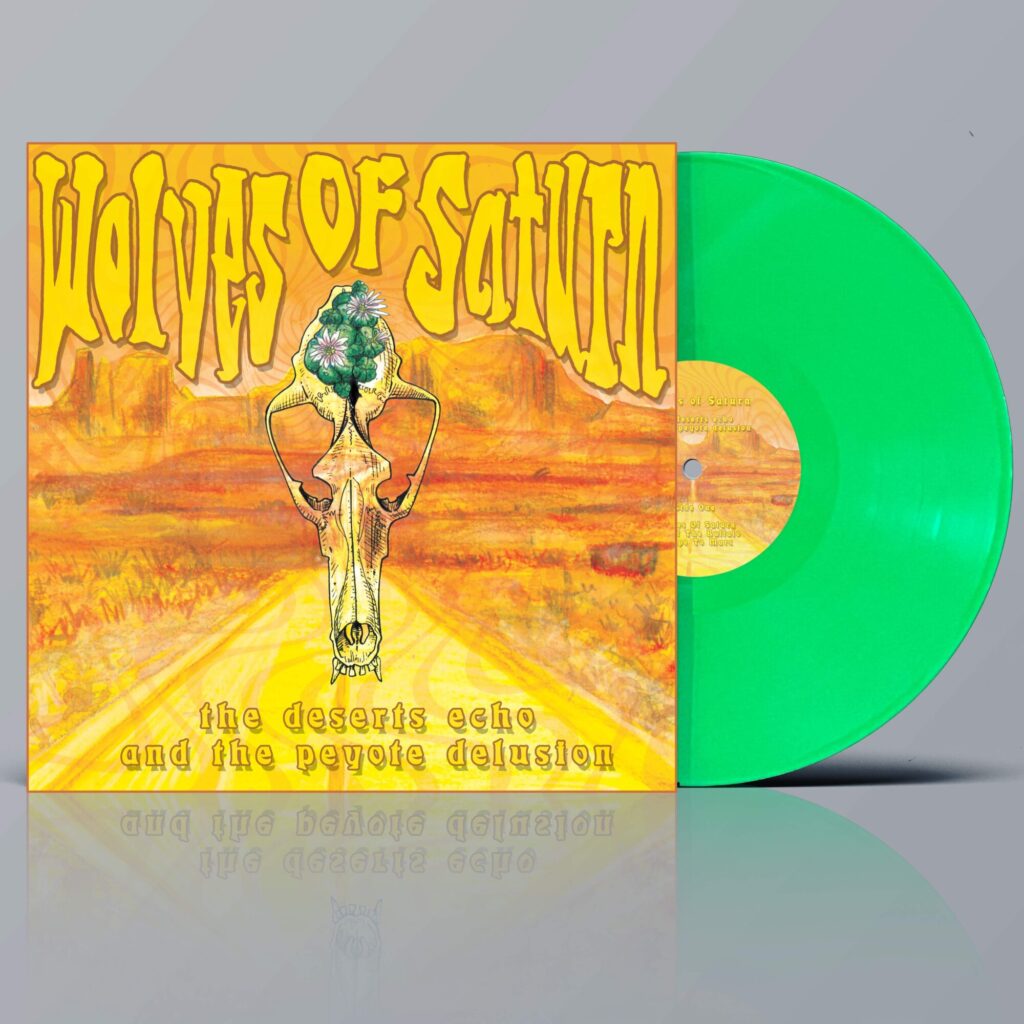
“We were searching for relief and space, and the desert became our inspiration.”
Please tell us about the recording of ‘the deserts echo and the peyote delusion’…
For us, recording our music—constantly, with every rehearsal—has been a routine for many years. Once we finished our first three songs, we recorded a demo called ‘The Bunker Tapes.’ We made about 20 CDs and sent them to two labels. Of course, we didn’t expect any response, but within 24 hours, Clostridium Records reached out and said they’d like to make a record with us. They asked for three more songs, so we got to work and continued the recording process.
We had fragments ready and shaped them into full songs. It was during the strict lockdowns of the Covid pandemic, so there wasn’t much waiting for us outside the bunker. We cut off any connections to the outside world and stayed in the bunker. At that time, it felt like a secret home to us. Deep below the surface, in the silence of the earth, we created and recorded the songs ourselves.
The narrowness of the bunker left its mark—the desire for freedom and expansion became a fundamental part of the songs. You could feel the sound carving its way through the underground to the surface. We were searching for relief and space, and the desert became our inspiration.
How did you come across this bunker, and what was it like there?
Steffen has had this bunker as a rehearsal space for more than 20 years. It’s located in a historic textile factory dating back to the early 20th century. Over the years, the bunker has been a place for music, used by different people and various bands. Kolki and Rich were part of that community for a couple of years, and that’s how we all got to know each other.
The fact that 80 years ago, people came here during bombings, fearing for their lives, is incredibly haunting. You can still see the old German markings and captions telling people to stay calm (“Ruhe bewahren!”) and showing directions (“Luftschutzraum”). We think we succeeded in turning something awful into something good and positive.
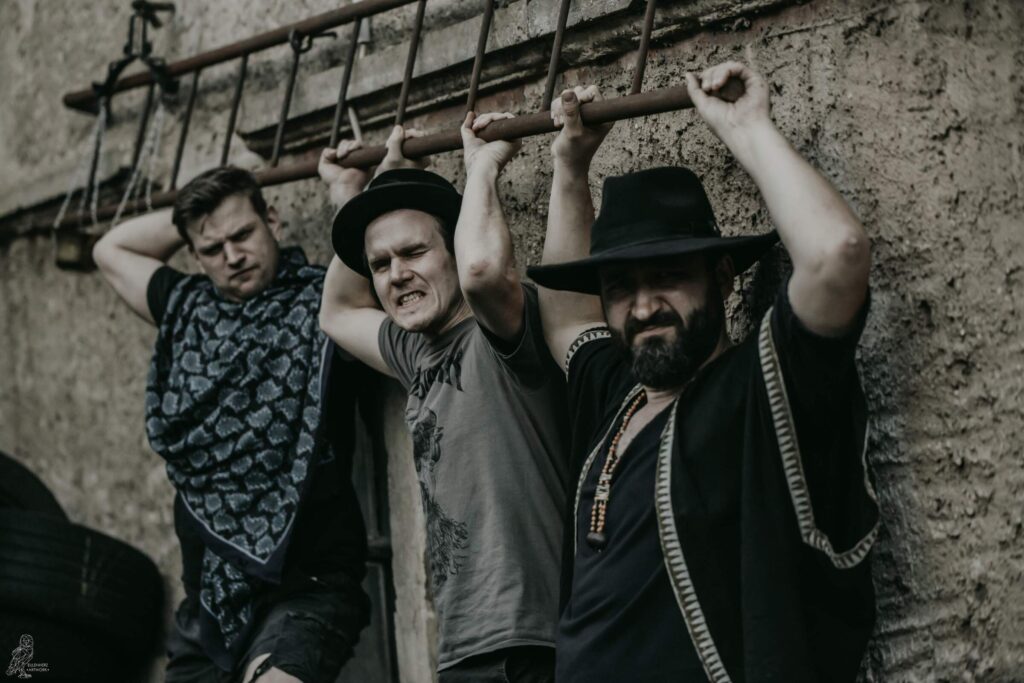
Did you have any hallucinogens with you in the bunker?
No, except probably the mold on the walls, coming from the high humidity in the bunker.
Being in the middle of a worldwide pandemic, did this give you apocalyptic vibes?
Definitely. We had to deal with a lot of restrictions. Basically, we weren’t allowed to see each other, and even making music was forbidden. We had to park our cars in different places and turn off the lights in the entry. It felt like we were either criminals or living in an episode of The Walking Dead. Fortunately, the advantage of a bunker is that you can basically hold a metal concert in it, and no one outside will hear a thing. It became our secret shelter.
Denunciation was a concern too, although probably only in our heads after a while. We felt like an unknown force was trying to prevent us from doing what we love—making music.
How did the heaviness and uncertainty of the pandemic affect your output?
Of course, we reduced rehearsals to a minimum, but the ones we had were very intense jam sessions with huge creative output. We were totally motivated whenever we met and ended up writing tons of songs.
It seems that you guys have a strong influence from the Palm Desert Scene in the US. What are some of your major musical influences?
For us, the theme of “desert rock” comes more from the natural meaning of a desert. It symbolizes the opposite of what we experienced at the time we wrote the songs—no traveling, pressure, uncertainty, and fear. In the desert, there are no restrictions. No one is watching you.
Of course, we love the heavy, dirty sounds of the Palm Desert Scene, but the modern psychedelic rock scene—whether from Nashville or Chicago—also had a huge influence on the sound of the album.
What is the scene like for like-minded bands in Germany? I know there is Desert Fest Berlin, but I have never been.
Germany is known for its huge festivals—you can find everything from stoner and prog to alternative music. But the scene for like-minded bands is much bigger, much more interesting, and far more exciting. There are wonderful DIY labels promoting non-commercial music that doesn’t follow the same old formula. Our German label, Clostridium Records, is a perfect example.
Unfortunately, the scene is facing huge challenges after Covid and due to heavy inflation in recent years. Small and medium-sized clubs are struggling to stay open. According to an official survey, nearly two-thirds of these clubs are no longer booking underground bands but instead are opting for more well-known acts (or cover bands) to guarantee some revenue. This is a disaster.
In the long term, it will lead to a terrible musical mishmash—no experiments, no crazy ideas, just the same old stuff. We believe everyone should ask themselves: should I spend 150 bucks on the next farewell tour of Deep Purple, or take that money and attend 15 concerts in your neighborhood to support local music and venues? It’s definitely a better investment.
There is to be a re-release of ‘the deserts echo and the peyote delusion’—tell us a little bit about that and when it will be available.
We’re super excited and grateful to be working with Herby Records on the re-release of our baby. There will be a super-limited edition for the US market available through Herby Records. The album will be available in the US on December 13, 2024. The re-release features a refreshed design and comes on gorgeous green-colored vinyl.
What are your future plans?
We’re nearly finished recording our second album and hope to release it by the end of 2025 in Germany. It will feature 14 songs across two LPs. Over the past two years, we’ve played a lot of concerts in Germany. For 2025, the highlights will include our first European tour with shows and festivals in Scandinavia, the Czech Republic, Poland, Croatia, France, and Italy.
Lastly, we’d love to play a handful of concerts in the US, probably by the end of 2026.
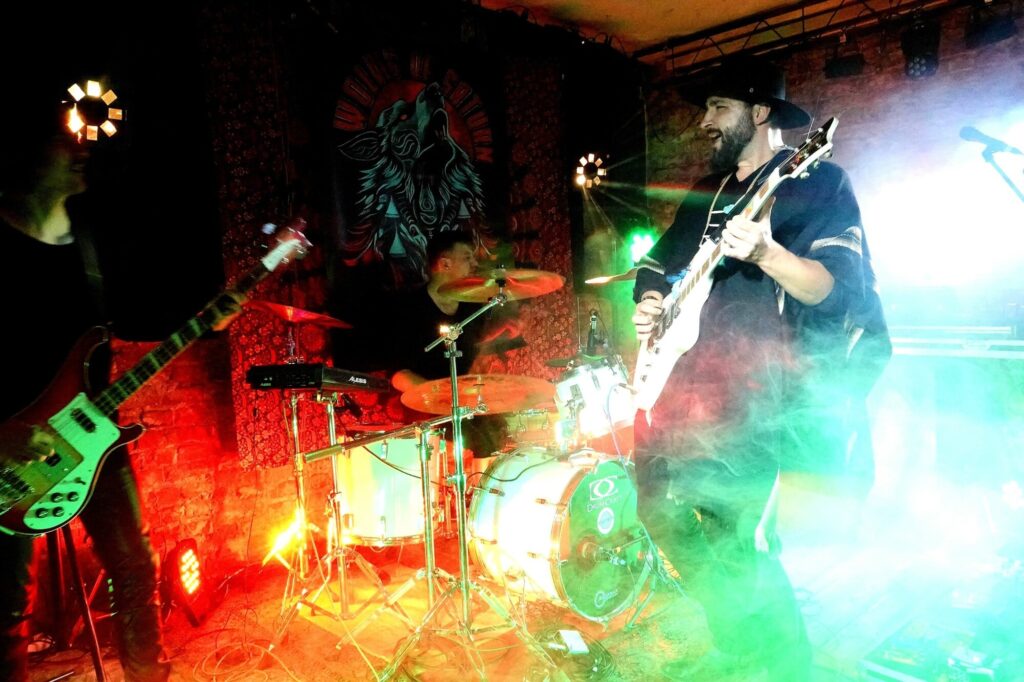
Any final words for readers of PBM?
Guys, support your local music scene!!!
Justin Jackley
Headline photo: Christoph Mangler
Wolves Of Saturn Facebook / Instagram / Bandcamp / YouTube
Herby Records Facebook / Instagram / Bandcamp

